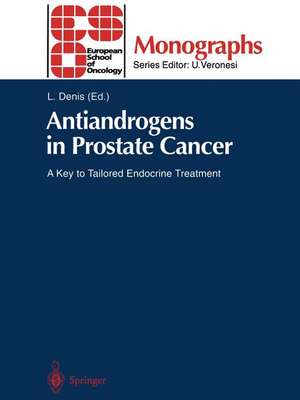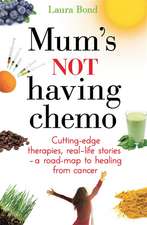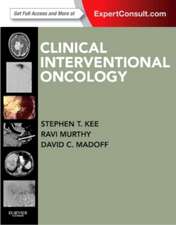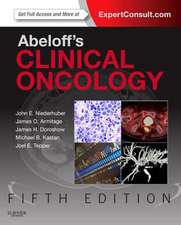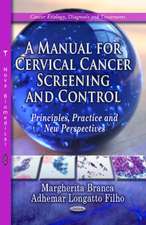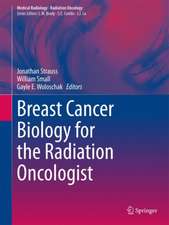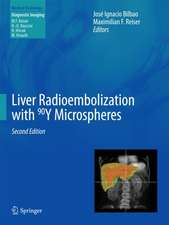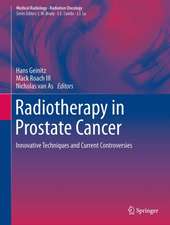Antiandrogens in Prostate Cancer: A Key to Tailored Endocrine Treatment: ESO Monographs
Editat de Louis Denisen Limba Engleză Paperback – 23 feb 2012
Din seria ESO Monographs
- 5%
 Preț: 711.52 lei
Preț: 711.52 lei - 5%
 Preț: 709.14 lei
Preț: 709.14 lei - 5%
 Preț: 718.65 lei
Preț: 718.65 lei - 5%
 Preț: 710.23 lei
Preț: 710.23 lei - 5%
 Preț: 706.97 lei
Preț: 706.97 lei - 5%
 Preț: 706.97 lei
Preț: 706.97 lei - 5%
 Preț: 711.88 lei
Preț: 711.88 lei - 5%
 Preț: 712.60 lei
Preț: 712.60 lei - 5%
 Preț: 714.06 lei
Preț: 714.06 lei - 5%
 Preț: 709.51 lei
Preț: 709.51 lei - 5%
 Preț: 706.20 lei
Preț: 706.20 lei - 5%
 Preț: 707.69 lei
Preț: 707.69 lei - 5%
 Preț: 708.41 lei
Preț: 708.41 lei - 5%
 Preț: 707.69 lei
Preț: 707.69 lei - 5%
 Preț: 710.23 lei
Preț: 710.23 lei - 5%
 Preț: 714.06 lei
Preț: 714.06 lei - 5%
 Preț: 707.69 lei
Preț: 707.69 lei - 5%
 Preț: 1088.39 lei
Preț: 1088.39 lei - 5%
 Preț: 1089.85 lei
Preț: 1089.85 lei - 5%
 Preț: 713.70 lei
Preț: 713.70 lei - 5%
 Preț: 710.79 lei
Preț: 710.79 lei - 5%
 Preț: 1087.31 lei
Preț: 1087.31 lei - 5%
 Preț: 707.69 lei
Preț: 707.69 lei - 5%
 Preț: 710.06 lei
Preț: 710.06 lei - 5%
 Preț: 363.24 lei
Preț: 363.24 lei - 5%
 Preț: 709.87 lei
Preț: 709.87 lei - 5%
 Preț: 715.35 lei
Preț: 715.35 lei - 5%
 Preț: 709.87 lei
Preț: 709.87 lei - 5%
 Preț: 1094.08 lei
Preț: 1094.08 lei - 5%
 Preț: 712.46 lei
Preț: 712.46 lei - 5%
 Preț: 710.43 lei
Preț: 710.43 lei - 5%
 Preț: 718.29 lei
Preț: 718.29 lei - 5%
 Preț: 359.60 lei
Preț: 359.60 lei -
 Preț: 389.49 lei
Preț: 389.49 lei
Preț: 711.52 lei
Preț vechi: 748.97 lei
-5% Nou
Puncte Express: 1067
Preț estimativ în valută:
136.15€ • 145.59$ • 113.52£
136.15€ • 145.59$ • 113.52£
Carte tipărită la comandă
Livrare economică 17 aprilie-01 mai
Preluare comenzi: 021 569.72.76
Specificații
ISBN-13: 9783642457470
ISBN-10: 3642457479
Pagini: 132
Ilustrații: VII, 120 p.
Dimensiuni: 210 x 279 x 7 mm
Greutate: 0.31 kg
Ediția:Softcover reprint of the original 1st ed. 1996
Editura: Springer Berlin, Heidelberg
Colecția Springer
Seria ESO Monographs
Locul publicării:Berlin, Heidelberg, Germany
ISBN-10: 3642457479
Pagini: 132
Ilustrații: VII, 120 p.
Dimensiuni: 210 x 279 x 7 mm
Greutate: 0.31 kg
Ediția:Softcover reprint of the original 1st ed. 1996
Editura: Springer Berlin, Heidelberg
Colecția Springer
Seria ESO Monographs
Locul publicării:Berlin, Heidelberg, Germany
Public țintă
ResearchCuprins
Some Aspects of the Molecular Endocrinology of Prostatic Cancer.- Pharmacology of Cyproterone Acetate — A Short Review.- Cyproterone Acetate — Results of Clinical Trials and Indications for Use in Human Prostate Cancer.- Biological Properties of Flutamide.- Combination Therapy with Flutamide: The Therapy of Choice from Early to Advanced Stages of Prostate Cancer.- Casodex: Preclinical Studies.- Clinical Aspects of Casodex.- Pharmacodynamics and Pharmacokinetics of Nilutamide in Animal and Man.- A Review of the Clinical Studies with Nilutamide.- Indications for Antiandrogen Treatment in Prostate Cancer.
Textul de pe ultima copertă
The introduction of maximal androgen blockade as a clinical therapy by Brachi and Labrie more than a decade ago led to a huge controversy on the clinical use of antiandrogens in the treatment of prostate cancer. Three consensus meetings were subsequently organized with the support of the American Cancer Society, the Urological Group of the European Organization for Research and Treatment of Cancer and the International Prostate Health Council. The first results of the meta-analysis of 22 trials did not put an end to the controversy, however, and clinicians were left confused by conflicting reports published by dozens of experts. The meeting behind the present volume created a forum for the scientists who developed the drugs and specialist clinicians to produce a consensus. The result is an overview of the field, condensed from hundreds of publications. The information has been updated to provide precise clinical indications for the use of antiandrogens in combination treatments and monotherapy for the individual patient. We hope that this team effort will facilitate ongoing discussions and lead to improved patient care as well as increased knowledge of the drugs that are so vital to our patients' quality of life and survival.
